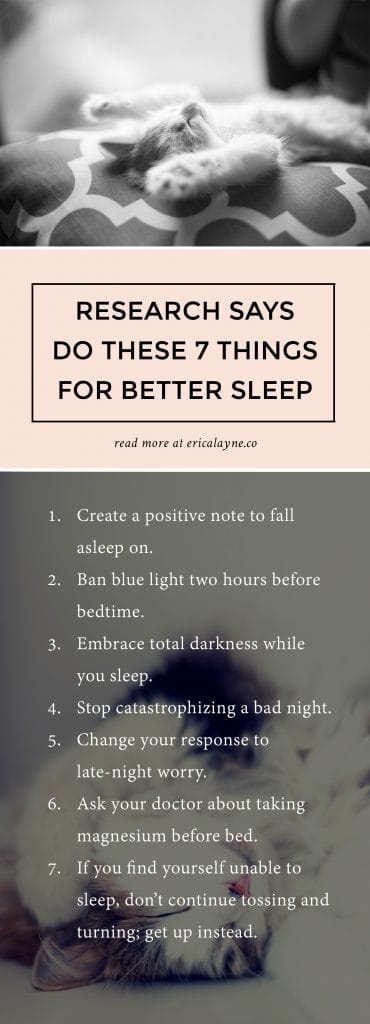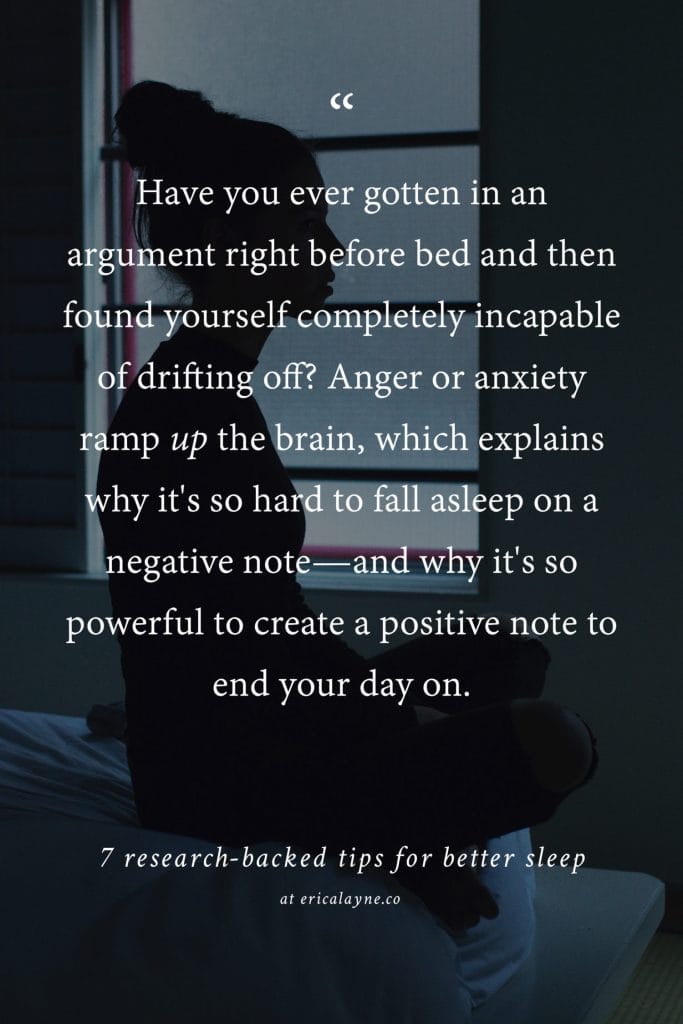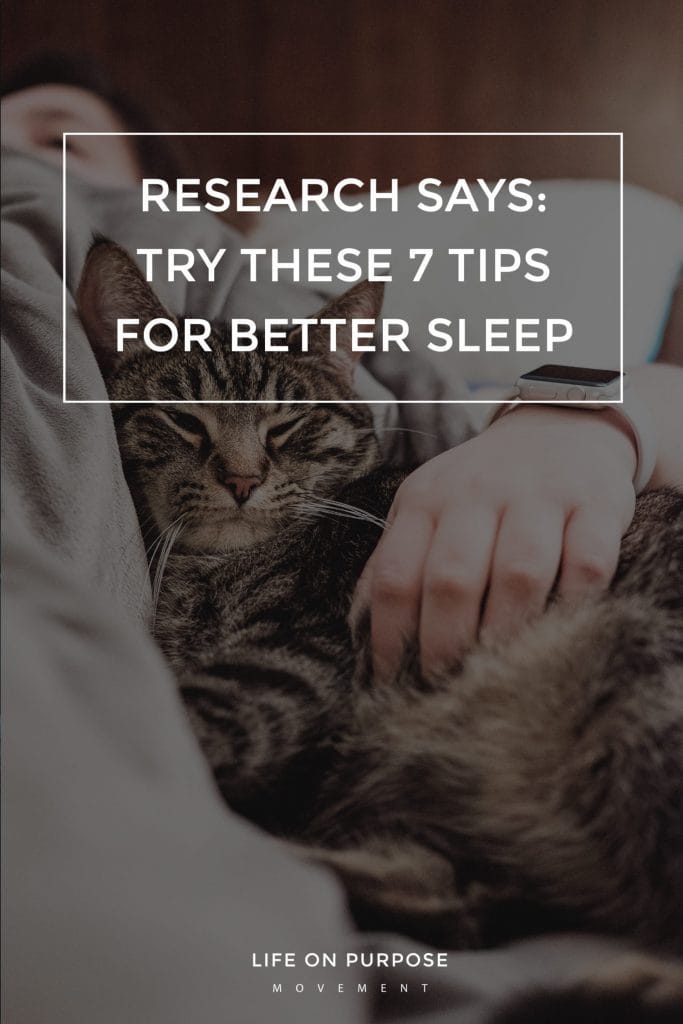Like most women I know, I have a complicated relationship with sleep.
There were the years when my husband (rightfully) accused me of being a sleep monster, because when you have a new baby in the house, no one—except that baby—better come between you and your precious, precious sleep.
Then there were the years when our kids were sleeping better at night, but I never really knew if they’d stay down once I put them there or what time they’d wake up for the day. And if a flu bug hit the house, heaven help us all.
I still have one early bird, but overall, our three kids are sleeping better than ever now. That said, all those years of fragmented sleep seem to have taken their toll. I regularly struggle to fall asleep… or I wake up in the middle of the night and start counting my worries like I’m counting sheep.
Long story short: I’m not far from the sleep monster I was when my babies were actually babies. 🙈
Because like any mom will tell you, sleep is everything.
For our kids… and for us.
I’ve done my research over the last couple of years and am making good strides with my sleep, so I can’t help but share. ❤️ No matter what stage you’re in as a parent, I hope these research-backed tips help you maximize whatever time you can get in your bed!

Research Says Try These 7 Tips for Better Sleep
1. Whenever possible, create a positive note to fall asleep on.
I love this one and will totally attest to its power. Have you ever gotten in an argument with your spouse right before bed—or read an email that suddenly got you fired up—and then found yourself completely incapable of drifting off to to sleep? Anger or anxiety ramp the brain up, which explains why it’s so hard to fall asleep on a negative note—and why it’s so powerful to create a positive note to end your day on.
Try meditation (I recommend the Headspace app), gratitude journaling, or a simple self-care routine to get yourself in the best frame of mind for sleep.
Want to create a bedtime routine that helps you fill yourself up AND fall asleep more smoothly? Check out my 7-day mini-course: Design a Soul-Filling Bedtime Routine. ❤

2. Ban blue light two hours before bed.
Blue light suppresses the body’s production of the sleep-promoting hormone melatonin and pushes back our circadian rhythms. Where blue light can be useful in shifting our cycles toward more wakefulness when we need it (like first thing in the morning), it has a negative effect when we need sleep.
Most iPhones have a “night shift” setting under Display & Brightness, which you can adjust to your preferences, making sure to lower blue light for two hours before your bedtime. But often, our computers or tablets don’t have this feature (at least not yet), so you may want to install F.lux, a free software that allows you to set up a night shift on any device.
Emerging research is showing that even the compact fluorescent bulbs many of us use in our homes could be pushing our circadian rhythms back, because of the blue light they emit. Consider switching to halogen or incandescent bulbs in your bedroom.
3. Embrace total darkness while you sleep.
According to the National Sleep Foundation, even small amounts of artificial light while you sleep can suppress melatonin, making it harder to fall asleep (as discussed above) and stay that way throughout the night. The foundation—as well as Dave Asprey, creator of Bulletproof Coffee and writer of the book Head Strong—recommends covering even small glowing lights, like power lights on your TV or the LED light on your computer charger. (Black electrical tape does the trick!)
If you go to the bathroom in the night, use a nightlight rather than strong overhead lighting.
Natural light also affects our circadian rhythms (as it’s designed to!), so make sure you use blackout window coverings during the hours you want to be asleep. The darker the room, the better the sleep.
More on this in this podcast episode: Biohacking for Moms, with Dave Asprey
4. Stop catastrophizing a bad night.
When you’re anxious about falling asleep, your body produces stress hormones that make it harder. Work to shake off the negative associations you have with sleep. Teach your brain not to catastrophize a bad night’s sleep. Finding the silver lining and telling yourself that lost sleep one night will only make it easier to sleep the next night. ?
5. Change your response to late-night worry.
“Between stimulus and response, there is a space. In that space lies our freedom and our power to choose our response. In our response lies our growth and our happiness.” Victor Frankl
When you notice that first worry cross your mind, think of it as the stimulus. Try to pause right there, in that space, and mindfully choose your response. You can choose to play out your worry in your mind—to let it snowball into so much more—OR you can choose to accept the thought and then let it drift by.
This excellent article from Mindful.org recommends trying diaphragmatic breathing (also called belly breathing) in that moment because it regulates irregular breathing patterns that often accompany worry and anxiety, and it resembles the breathing we naturally do when we’re asleep.
6. Ask your doctor about taking a magnesium supplement half an hour before bed.
Is it just me, or is everyone talking about magnesium lately? Maybe it really is just me and my over-researching tendencies. 😉 But literally the other day I was on a cycle bike in the gym and overhead two women talking about magnesium before bed. (Naturally, I jumped in on their convo.)
It goes without saying, I hope, that I’m not a medical professional and you should talk to someone you trust before starting, but research has shown that even a marginal lack of magnesium in the body can prevent the brain from settling down at night.
Well & Good: The All-Natural Sleep Aid You Need to Know About
7. If you find yourself unable to fall asleep, don’t continue tossing and turning; get up instead.
Don’t stay in bed letting your brain run relentlessly. And definitely don’t turn on your blue-lit screens in the middle of the darkness. Get up and do something mindless for twenty minutes or until you start to feel drowsy. Then get back into bed.
This also helps you prevent associating your bed with negative feelings—the frustration of watching the clock and counting down the hours until it’s time for you to get up.

Wishing you all the best as you move toward better sleep! If you have an extra second, let us know in the comments if this has been a struggle for you—and what has helped!
Struggling to Turn Your Brain Off at Night?
One thing that has made a huge difference for me, as well as hundreds of women in our community, is regularly practicing a mental clear-out.
It not only helps you get better sleep; it also just makes your days feel more peaceful! Download my free, 5-step checklist right here! 👇
Quieter nights (and happier days) await! 😉





I’m reading this after California just had daylight savings time (we lost an hour of sleep!) and I’ve been struggling with getting to bed at a decent hour. Once the clock hits 10 pm and I can’t fall asleep all I can think about is how I NEED to fall asleep and the waves of worry rush in. Thanks for your tips!
I’m glad it’s not just me, Bree! And whyyyyy, Daylight Savings, why?!
Exercising in the morning before work, no caffeine after noon, no sugary foods or drinks in the late afternoon or evening, reading a pleasant “paper book” or knitting while listening to a pleasant story right before bed, (no TV or reading on a device, nothing that “ramps up” the thinking or emotions) are all things that help me to sleep well. (At the age of 64)
Thanks for this post!
About the point nr. 7, what Sleep Science evidence specifically says is that you should get out of bed and your bedroom if you don’t manage to fall asleep in 30 MIN.. Whatever the time it happens (at the beginning of the night or in the middle of it).
Do whatever (without blue lights nor screens, as this post wisely shows) FOR AS MUCH TIME AS YOU NEED until you feel drowsy. Then, go back to bed.
If you wake up again and, once more, don’t fall asleep in 30 min, repeat.
This should be orientative, you should estimate those 30 min on your own. DON’T CHECK YOUR CLOCK continuously over the night; this doesn’t help at all.